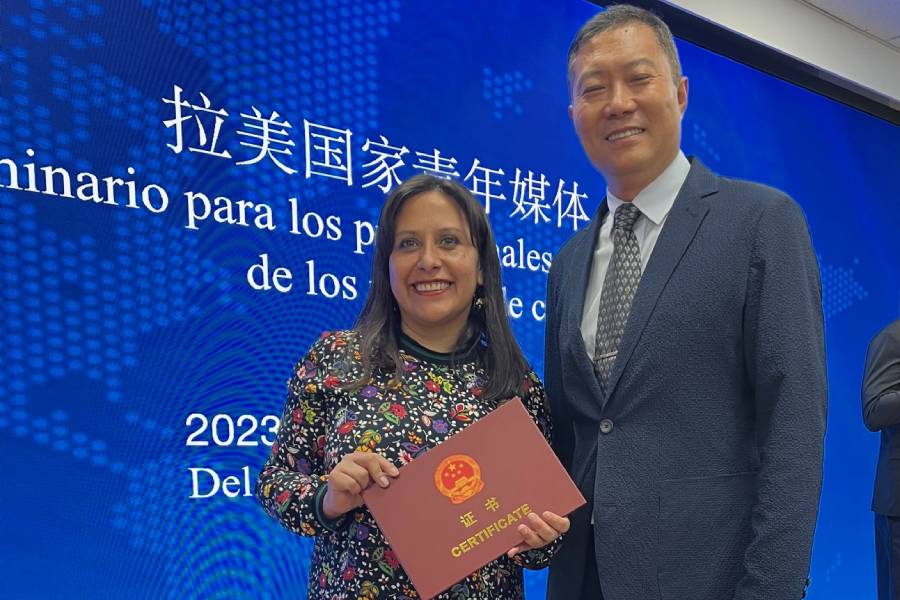|
Pamela Carrasco of Universidad de La Frontera obtained a scholarship to get to know the current challenges of journalism, together with 30 other professionals from Chile, Colombia, Costa Rica, Cuba, Panama, the Dominican Republic, Venezuela, and Uruguay. |
The professional journalist Pamela Carrasco Salas, of the Communications Office of Universidad de La Frontera (UFRO), received a scholarship from the Chinese National Radio and Television Administration (NRTA) to participate in the Seminar for Latin American Journalists, through the Chilean Agency for International Cooperation for Development (AGCID) and the Embassy of China in Chile. According to the professional who obtained this scholarship to get to know the current challenges of journalism together with 30 other professionals from Chile, Colombia, Costa Rica, Cuba, Panama, the Dominican Republic, Venezuela, and Uruguay, the connections with Chinese institutions are more evident than ever, despite the language and time difference and the extreme distance between South America and Asia. The seminar included numerous activities related to the development of communications, for which the participants travelled to Beijing and Shenyang, and visited media companies, as well as other companies and successful economic and social institutions. “When we talk about the internationalisation of our university, we have to expand our horizons, break down barriers, find our spaces, and act for more cultural understanding,” explained Pamela Carrasco. CHINA 5G “China’s advances in innovation and technology are really remarkable, not only because of the satellite buses’ real-time transmission, the 5G network in all provinces, or the 8K resolution. They are also a great example regarding the creation of content for all kinds of audiences and segments: children, adolescents, and senior citizens are not left out in the range of programmes and contents, and that is a good thing,” she affirmed. The offer of the China Central Television (CCTV) comprises 20 national and international channels, and special economy, culture, and sports channels, among others. The use of new technologies in the traditional industry is a great source of opportunities. PARTNERSHIPS WITH UFRO Universidad de La Frontera has three cooperation agreements with Chinese universities, the University of Jinan, Zhejiang University of Science and Technology, and the Communication University of China, which is UFRO’s counterpart of the Confucius Institute, one of the main bodies for the dissemination of Chinese culture in the world. According to the journalist Pamela Carrasco, the course allowed her to learn from professors of the Communication University of China and about fields of great interest, such as media development and exchange, cooperation between Chinese and Latin American media, media literacy in the information age, constructive journalism at the service of global issues, and content production and innovation in times of media convergence. “The cooperation with these teachers and also with former diplomats was a very enriching experience, also because of what it means to stop looking through the eyes of a Western country and to appreciate how this Asian country has approached the development of its television, radio and digital media industry, with a considerable international expansion,” she explained.
Written and translated by: UFRO Communications Office
|






